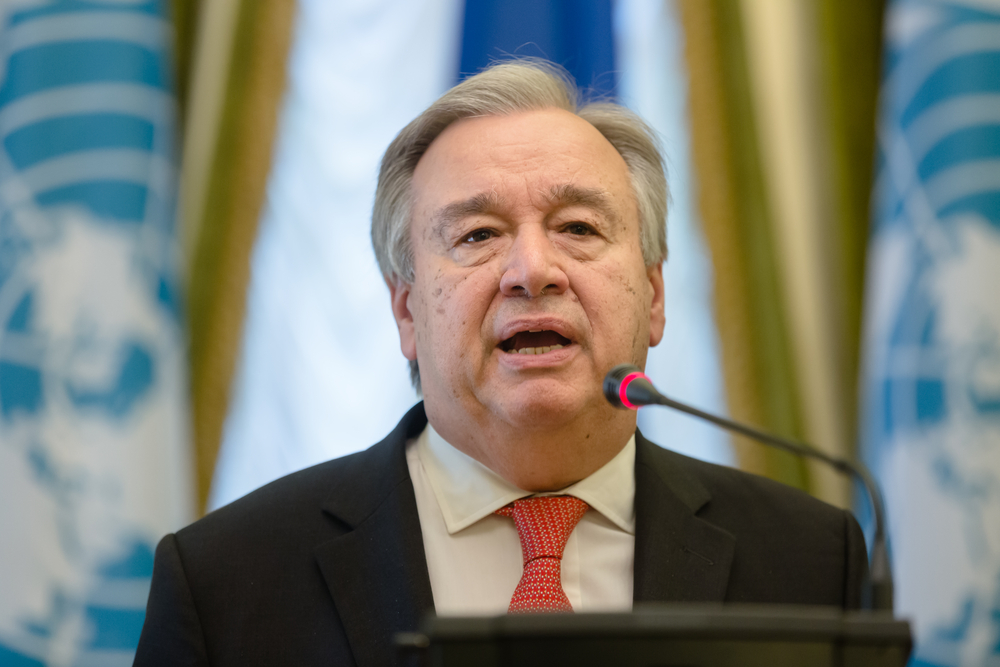News
Saudis, UAE lead way with new funds for Yemen sought by UN

Secretary-General Antonio Guterres, opening the conference, lamented “an overwhelming humanitarian catastrophe” in Yemen, where some 24 million people, or four-fifths of Yemen’s total population, require aid and protection. (Shutterstock Photo)
GENEVA — Saudi Arabia and the United Arab Emirates led the way Tuesday in contributing hundreds of millions of dollars to help Yemen, where their countries’ Western-backed militaries are deeply engaged in a wrenching and bloody fight against Iran-aligned militias.
The commitments of $1.5 billion by the two rich regional powers made up over half of the total tally from the third U.N. pledging conference for the impoverished Arabian peninsula country, nearing its fourth year of intensified war. The United Nations says Yemen faces the world’s gravest humanitarian crisis, and tens of thousands are believed to have died from gunfire, bombs, disease and starvation.
The U.N. said 40 pledges totalling $2.6 billion were received during the day-long conference, a 30-per cent increase from the amount drummed up at a similar conference a year ago.
Secretary-General Antonio Guterres, opening the conference, lamented “an overwhelming humanitarian catastrophe” in Yemen, where some 24 million people, or four-fifths of Yemen’s total population, require aid and protection.
“Twenty million people cannot reliably feed themselves or their families,” he said. “Almost 10 million are just one step away from famine.”
Saudi Arabia and the UAE have waged an extensive air campaign; imposed air, sea, and land embargoes and tightened access to the country by shutting down its main airport in Sanaa. The two countries entered the war in 2015 after Houthis pushed the internationally recognized government out of the capital Sanaa in 2014.
U.N. officials sought to distinguish between the harsh realities of a war that they want to see end, and the pledges laid out to address a lingering — and worsening — humanitarian imperative in Yemen.
“We are not disregarding the war that exists, and the fact that a number of countries — and not only the ones you mentioned — have had a direct impact on that war,” Guterres told a news conference. “And obviously what we want is to end the war, and to end all the consequences of the war.
“Independently of that, today we are at a pledging conference to address humanitarian needs,” he added.
Mohamed Abdi, the Yemen director for the Norwegian Refugee Council aid group, decried that “while billions are spent on bombs and weapons bringing death and destruction, much less is made available to save lives of Yemeni civilians.”
He appealed to Yemen’s warring parties “to give us unhindered access to people in need, and to stop interfering in the delivery of aid.”
U.N. officials trumpeted one sign of upbeat news on the ground Tuesday: Aid workers regained access to key grain storage silos in the conflict-ridden port city of Hodeida for the first time in six months.
The Houthis had blocked the World Food Program from crossing a front line into the government-controlled area where the silos are located.
WFP spokesman Herve Verhoosel said some 51,000 metric tons of wheat — enough to feed 3.7 million people for a month — had been in storage at the site when it was rendered inaccessible. He said an assessment is under way to determine the state of the wheat.
The United Nations’ “Humanitarian Response Plan for Yemen” in 2019 seeks $4 billion to reach 15 million people across the country, after raising nearly $2.6 billion last year.
U.N. officials say they are running out of money in a country hamstrung by a devastated health care system, a lack of jobs, continued fighting and fallout from the world’s worst cholera epidemic in 2017.
———
Associated Press writers Samy Magdy and Maggie Michael contributed from Cairo.





















